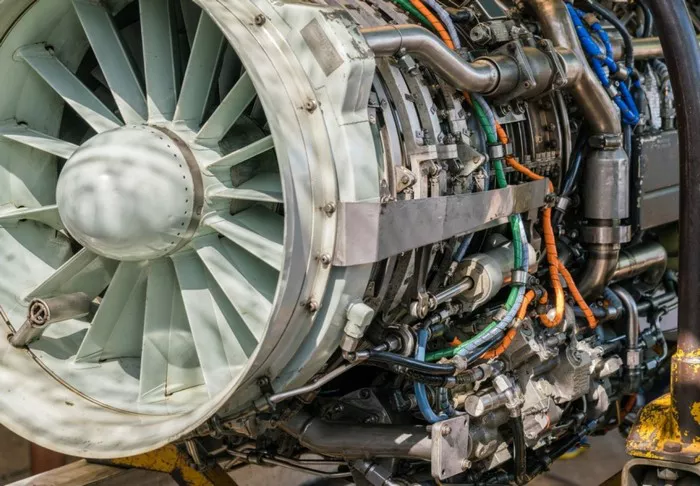GE Aerospace has successfully completed over 3,000 endurance test cycles on its next-generation high-pressure turbine (HPT) airfoil technologies, marking a critical milestone in the development of a more compact and efficient engine core for future aircraft.
The testing campaign, part of the CFM RISE (Revolutionary Innovation for Sustainable Engines) program, evaluated advanced turbine blades and nozzles embedded with GE’s latest cooling technologies. These components, designed to withstand extreme heat and pressure, demonstrated enhanced durability and improved fuel efficiency compared to traditional turbine systems. Testing was conducted using an F110 engine, a proven military platform, to simulate the core environment of next-generation commercial engines.
The program comprised two test phases. The initial round, launched in 2023, focused on validating the performance of the new cooling designs. The second and more recent campaign simulated high-thrust conditions typically encountered during takeoff and climb, pushing the hardware to extremes to evaluate reliability under real-world stress.
“With endurance tests conducted on new high-pressure turbine blade cooling technologies, it shows the CFM RISE program’s early focus on durability and reliability,” said Arjan Hegeman, vice president of future of flight engineering at GE Aerospace. “This is the earliest in new technology development that we’ve done durability tests, incorporating the experience of our commercial aircraft engines flying today.”
The tests confirmed the thermal, mechanical, and systems performance of the HPT components, which are located in the engine’s most thermally demanding section. Next, GE Aerospace plans to conduct dust ingestion testing, which will further assess the airfoils’ resilience in harsh environments such as desert and volcanic conditions.
The HPT blade technology is part of a broader effort to develop a compact engine core that integrates a high-pressure compressor, combustor, and turbine components. The core demonstrator is expected later this decade and aims to deliver significant gains in thermal efficiency and power-to-weight ratio over current commercial engine architectures.
Launched in 2021, the CFM RISE program represents one of the most ambitious technology development efforts in modern aviation, with over 250 tests completed to date. The initiative is also advancing disruptive propulsion technologies such as the open fan architecture and hybrid-electric systems.
These innovations are being developed and tested for compatibility with both conventional jet fuel and alternative fuels, including 100% unblended Sustainable Aviation Fuel (SAF). RISE targets more than 20% better fuel efficiency than the most advanced commercial engines in operation today, along with reductions in noise and emissions.
The open fan configuration, a hallmark of the program, allows for a larger fan diameter without a gearbox, reducing both fuel consumption and acoustic footprint. Meanwhile, hybrid-electric integration explores ways to combine electric power with traditional turbines to optimize performance during different flight phases.
As the aviation industry pushes toward net-zero carbon goals, GE Aerospace’s advancements in turbine cooling and compact core design represent a major step toward building the next generation of sustainable, high-performance aircraft engines.

